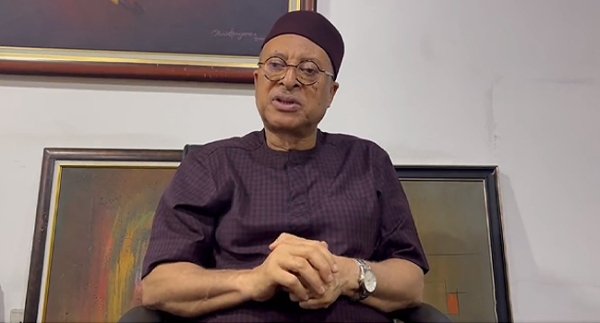A FEDERAL High Court sitting in Abuja has struck down the move by political economist, Professor Pat Utomi, and his associates to establish a shadow government in Nigeria, declaring it unlawful, illegal, and unconstitutional.
News Point Nigeria reports that delivering judgment in a case filed by the Department of State Services (DSS), Justice James Omotosho ruled that Utomi’s initiative, the Big Tent Coalition Shadow Government (BTCSG) was “null, void, and of no constitutional effect.”
The judge held that while Nigerians enjoy rights of association and expression, those rights cannot be stretched to justify activities that undermine constitutional order.
He stressed that any Nigerian seeking to influence governance should either form or join a political party and contest elections, or provide constructive opposition within lawful limits.
“The defendants cannot hide under the umbrella of fundamental rights to association and expression to engage in acts that are unlawful,” Justice Omotosho declared.
He further ruled that the registration of the BTCSG with the Corporate Affairs Commission (CAC) for the purpose of sponsoring a shadow government was ultra vires beyond the legal powers conferred by law.
On whether the DSS violated the fundamental rights of Utomi and his allies, the court held otherwise, ruling that “fundamental rights are not absolute” and that the DSS acted within its mandate to prevent actions capable of threatening Nigeria’s internal security.
The DSS, in its suit marked FHC/ABJ/CS/937/2025, had argued that the concept of a shadow government is alien to Nigeria’s presidential system and could destabilise the nation’s democratic structures.
According to the secret police, a parallel government “poses a grave risk of political unrest, intergroup tensions, and could embolden separatist or unlawful entities to attempt similar parallel arrangements.”
The agency therefore sought and secured an order of perpetual injunction restraining Utomi and his associates from taking further steps to establish or operate any form of shadow government, shadow cabinet, or similar entity not recognised by the 1999 Constitution (as amended).
Justice Omotosho agreed, citing Sections 1(1), 1(2), and 14(2)(a) of the Constitution, and concluded that only structures provided for in the Constitution can exercise governmental authority in Nigeria.
In May 2025, Prof. Utomi had launched the BTCSG, describing it as a “national emergency response” to Nigeria’s governance challenges. However, his initiative immediately drew scrutiny, with the DSS moving to challenge its legality in court.
With the ruling, the court has effectively shut down Utomi’s shadow cabinet, affirming that in Nigeria’s democracy, only duly elected governments and recognised political parties can hold legitimate authority.







